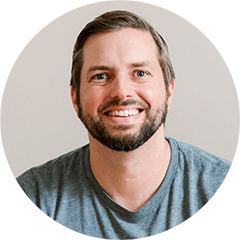What Simone Biles Can Teach Us About Financial Life Planning
The sporting world was rocked recently by the news that Simone Biles, gymnast extraordinaire, was standing down from competition in certain events at the Tokyo 2021 Olympics in order to prioritize her mental health. It was a breathtaking stance; to see a young woman at the top of her game go against the career grain and stand firmly in her own authenticity.
Simone Biles’ professional achievements need little introduction. She has dominated the world of gymnastics for almost a decade, and there are even four skills named after her. She is arguably the Greatest of All Time (GOAT). Plus she is a hometown girl from Spring, Texas.
Simone was born in Ohio in 1997. Her birth mother was unable to care for her, so she was taken into foster care. At age 3, she went to live with her maternal grandfather in Texas. She discovered gymnastics at age 6, and by age 8 she was training with a coach.
By age 14, Simone began her elite career. The following year, she left public school so she could focus on her training. She qualified for the US Junior National Team in 2012, and in 2013 won her first World Championship Gold medal. We all know the story from there.
Work Should Facilitate Life, Not the Other Way Around
Fast forward to July 27th, 2021 and Simone Biles was “[feeling] the weight of the world on [her] shoulders.” During warmups for the first rotation of the Team Final, Biles balked on the Amanar vault mid-air and only completed 1.5 twists instead of the expected 2.5. The same thing happened during competition, and she almost fell on the landing. It was at that moment she decided to withdraw.
Controversy ensued. Some commentators applauded her decision, noting how important it was to protect mental health. Others denounced her, saying she failed her team. I am no gymnastics expert, but I was a former collegiate athlete. Most competition is mental. But in gymnastics, one small screw up can leave you paralyzed or worse. My take: Biles did what was right for her and her team.
We go through life with so much on our shoulders. So many expectations. And many of those expectations are not our own. We are constantly bombarded with advice from our parents, our friends, our partners, and our colleagues. We set out on paths in life that people expect us to take. And then we wonder why we are so stressed and burnt out; why we are so unhappy with our lives.
Simone Biles could have made the decision to continue competing in the Tokyo Olympics. But she did something brave instead. She knew if she continued competing, she could not only hurt herself, but her team. She stepped away gracefully. Then got right back out there to cheer them on. The Olympics are but one moment in time. But Simone has a lot of life left to live.
Your Money or Your Life? You CAN Have Both
Why is Simone’s story so important? Because her story is all of ours. We have all had moments in our life where we’ve been forced to choose our careers or our well-being. When the crunch came, what did you choose? How could financial life planning help you avoid having to choose between your money and your life in the future?
I’m reminded of a client of mine, a young attorney on track to make Partner in his firm. For the sake of this story, let’s call him Charles. Well educated and dedicated, Charles had worked long hours to achieve his professional goals. He took out six-figures of student loans to finance the path he felt would lead him to financial and career success. But then something happened to him that made him question his path.
A relationship ended. A long-time canine companion passed away. Charles noticed that what he really wanted in life was something he could not buy: time. Time to spend with loved ones. Time to pursue his passions. Time to live the way HE wanted to live, not live the way others EXPECTED him to live.
Financial Life Planning with Purpose
Charles was tired of the rat race. He was tired of not having time to spend with friends or pursuing passions. We had worked hard together to make sure he was doing the right things financially. But this was a challenge that money could not solve. Just like Simone, he too felt the weight of expectations on his shoulders.
After much consideration, Charles decided to quit his firm and take time off to focus on his well-being. We worked together on his financial life planning to build up a 6-month emergency fund. And once that was complete, we worked together to build up an additional investment account. The federal moratorium on student loan payments through The CARES Act was also a blessing, as he was in an income driven repayment plan. The time was right for him to take his sabbatical.
Fast forward 4 months later, and Charles was happy. He knew he did not want to go back to his previous career track, living to work instead of working to live. He fulfilled a bucket list goal of competing in an ultra-marathon. He spent more time with family and his friends. He adopted a new canine companion. His shoulders felt light.
There is one thing Charles said has really stuck with me. He said: “So many people are enamored with career or financial success. But I have learned that is not important to me. I don’t need all this stuff around me. I just need to be happy.”
The final piece of advice I gave Charles was to focus on life first, and then we can focus on the money. It was an impactful conversation, and we are now actively mapping out financial life planning to suit his goals, supported by educated and empowered financial choices.
Creating a Life Plan that Works for YOU
If you could design the perfect life for yourself, what would it look like? It really is possible to utilize well structured financial life planning to allow your financial life to support you in living with joy and fulfilment.
Just like Simone Biles, Charles knew something wasn’t right inside. He did something brave. He bowed out gracefully to focus on his well-being. What a wonderful gift to give yourself.
The famed football player Marshawn Lynch gave some great advice to young players at a press conference in 2018. He said: “So start taking care y’all mentals, y’all bodies and y’all chicken (money). And when y’all ready to walk away, you walk away and be able to do what you want to do.”
We can always make more money, but we only have one mind and one body. So, ask yourself, are you living your authentic self, or are you living someone else’s expectation of you? Are you taking care of your mind, your body, and your money? Can you afford to walk away and be able to do what YOU want to do? If you answered no, let’s talk. We have one life to live. Let’s do it living authentically.












